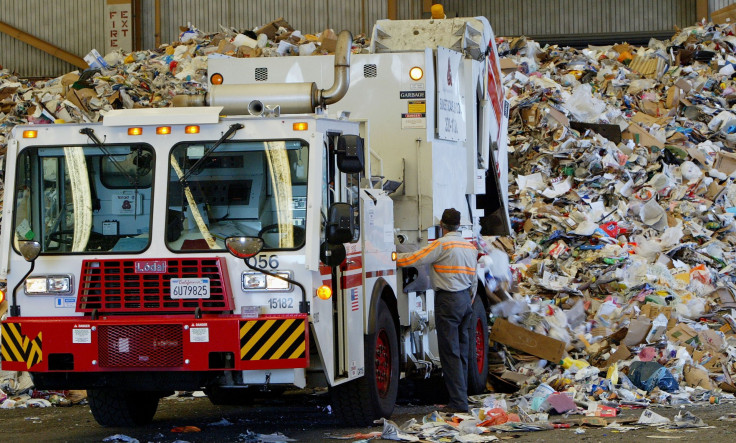US Plastic Waste Export, Banned By China, Skyrockets To Developing Countries

Following China’s decision to ban foreign plastic waste imports into the country, United States plastic waste exports to other developing nations in southeast Asia increased dramatically in the first six months of the year, a report by Unearthed, the journalistic investigation wing of the Greenpeace, noted Friday.
According to an analysis of U.S. census bureau data by Unearthed, less than a quarter of the waste exported from the country for recycling in the first six months of 2018 was shipped to China and Hong Kong. The data from 2017 for the same time period showed nearly three fourth of the waste was exported to China and Hong Kong.
The majority of plastic waste in 2018 was shipped to Thailand, Malaysia, India, Canada, and Vietnam for recycling, the data showed.
The ban on foreign imports in China left many western countries, including the U.S. in a bind due to the excess plastic waste that was produced but could not be taken care of. The U.S., Britain, Germany, Japan, and Mexico were among the biggest exporters of scrap plastic to China, according to a report in the Guardian.
“Instead of taking responsibility for their own waste, U.S. companies are exploiting developing countries that lack the regulation to protect themselves,” John Hocevar, Oceans campaign director for Greenpeace USA, told the Guardian. “It’s a problem for the US and other developed countries to produce, often, toxic material which they can’t or won’t take care of themselves.”
Before this year, the US was sending most of its plastic waste to China. Then, in January, China shut its doors. We've done a data analysis to find where it's been going since then. https://t.co/tIBcc7ydms pic.twitter.com/kZYVaDLK8V
— Unearthed (@UE) October 5, 2018
By the sixth month of the year, U.S. plastic scrap export to China dropped by a third as waste management firms were struggling to find places to send it to. The analysis by Unearthed, however, found other countries accepting more plastic scrap.
Thailand accepted 1985 percent increased amount of plastic waste compared to 2017, while Malaysia received 273 percent increased amount.
The influx of waste has forced more restrictions on plastic waste import in these Asian countries according to the report.
Restrictions and taxes were introduced in the countries including Vietnam and Thailand after the China plastic ban due to the high amount of plastic waste which was imported. This could result in a crisis situation for the recycling industry in the U.S., the Unearthed report said.
A plastic processing factory was shut down in Malaysia due to air and water pollution. The Malaysian government also announced a new import tax on plastic waste last week.
According to experts, these countries do not have the capacity to deal with the plastic waste in a safe, environment-friendly way.
“Some of these countries just don’t have the infrastructure in ports or roads to deal with an increase in volume of material,” Robin Wiener, CEO of US trade body the Institute of Scrap Recycling Industries, told Unearthed. “Pop-up recyclers are trying to take advantage of these shifting markets but they are not doing it properly. They are not following industry standards when it comes to environmental, health, and safety practices.”
The report said the situation might develop into a crisis for American recyclers. Recycling firms that used to pay authorities for waste that could be turned into recycled goods are now starting to charge the state.
What was earlier a revenue stream for authorities is now becoming a cost, Zoe Heller, assistant director of policy development at CalRecycle, California’s state waste management agency, said.
“The environmental benefits of recycling now come with a cost that we haven’t seen in California before,” he said.
“We saw the writing on the wall,” Brent Bell, vice president of recycling at Waste Management, the biggest waste management firm in the U.S., said. “The industry has to find domestic outlets for our material.”
“We have to encourage manufacturers to use a high proportion of recycled content in their products. And we have to make sure recycling is clean, to begin with,” he said. “There need to be more grants to help with upfront investments in manufacturing facilities so more companies can take recycled materials and make them into new products.”
© Copyright IBTimes 2024. All rights reserved.




















